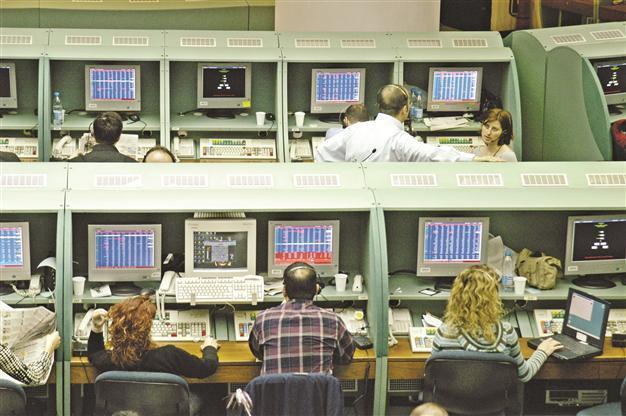Be ready for new capital inflows, Fitch chief says
ISTANBUL - Anatolia News Agency

Traders work at Istanbul Stock Exchange (İMKB). Turkey expects a capital inflow after Fitch’s rating upgrade. DAILY NEWS photo
The Central Bank should lead the Turkish economy to prevent it from a loan balloon, overheating and the possibility of an increase in current account deficits again, as capital inflows to the country may increase due to a rating upgrade, according to Ed Parker, chief analyst at Fitch Ratings.Fitch Ratings recently upgraded Turkey to investment level, citing a soft landing in the economy, improvements in recent financial risks, decreasing public debt, a strong banking sector and a relatively diversified economic structure as reasons behind the move.
Fitch holds Turkey event
Upgrading Turkey to investment grade was right on time as Turkey’s risk perceptions decreased, he told Anatolia news agency yesterday, prior to a meeting that the international ratings agency will hold today in Istanbul.
“Turkey has proved that its economy is in good condition, but it has a fragile economic past and ongoing current account deficit. Considering this, particularly the Central Bank should lead the Turkish economy in such a way to prevent it from a loan balloon, overheating and the possibility of a current account gap increase again as it goes forward.” Typically upgrading a country’s credit rating to investment level indicates that the country will have a larger capital pool and inflow, he said. “This just does not happen automatically. Turkey already had a strong capital inflow in the last 12 months. In any case, this shows that it is important for the Central Bank to have a strong hand to manage capital inflow and to handle the possibility of an overheating economy,” he said. A further upgrade should be expected from Fitch in the next two years, he added.
Finance Minister Mehmet Şimşek said upgraded countries generally attract 4 percent of their gross domestic product in foreign direct capital. In Turkey’s case it may hit $32 billion after one or two years, he added.
Meanwhile, Rahmi Koç, the honorary president of Koç Holding, a leading local conglomerate, said he expects a rating upgrade for Turkey from Moody’s and S&P, the other two prominent international rating agencies.
















